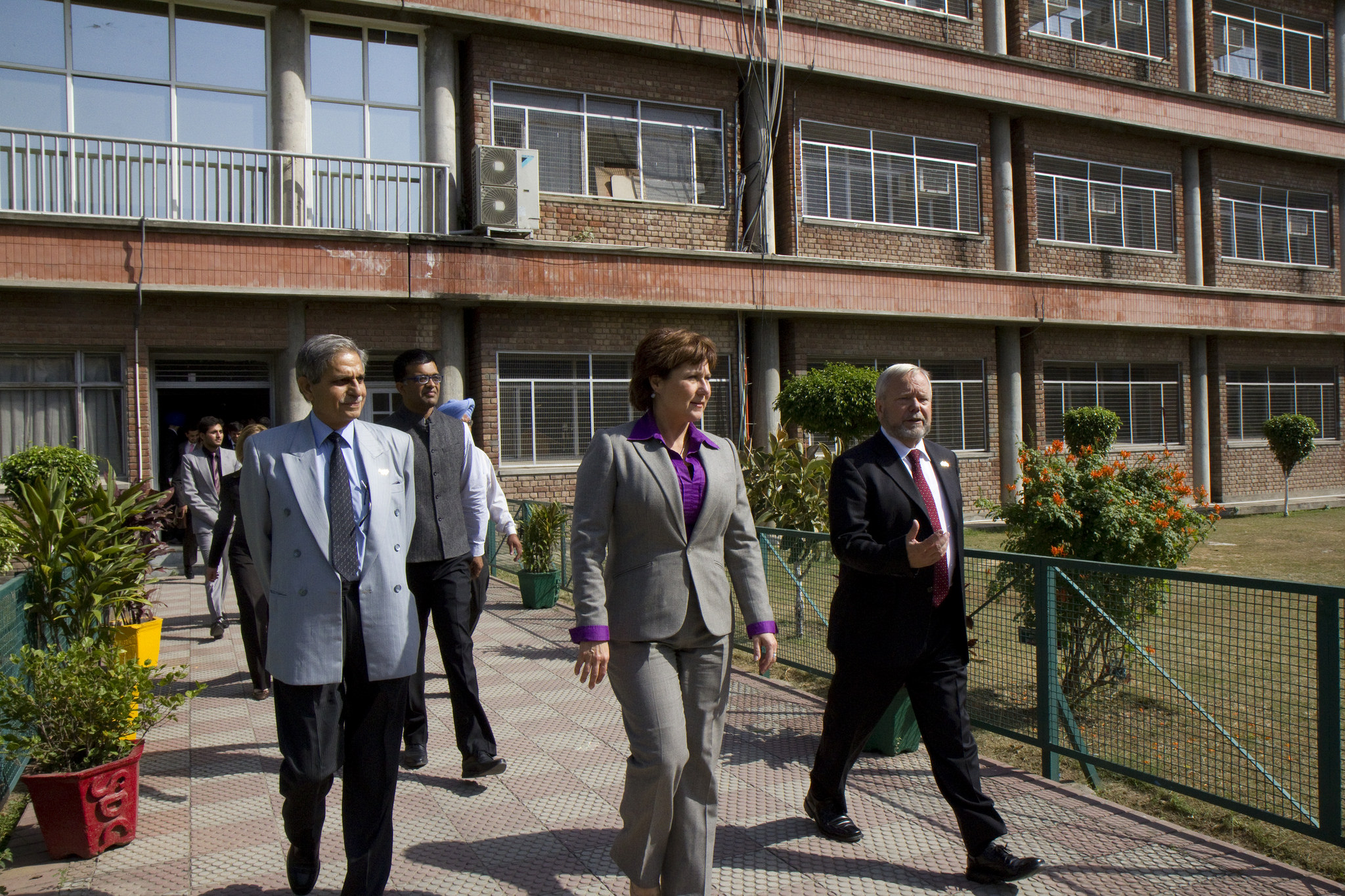By Megan Lambert (The Cascade) – Email
Print Edition: November 5, 2014

The latest involvement of the BC Liberals in UFV planning was announced last month during Christy Clark’s visit to Chandigarh.
Following the party’s new mandate for education funding to support the trades as a direct result of plans involving the province’s start-up LNG industry, this time Clark is focusing on economic partnerships between BC and India. The two objectives met when the premier visited UFV’s satellite campus at the Sanatan Dharma (SD) College in Chandigarh, India.
Encouraging a closer connection between the two parts of the university, and the larger economic context surrounding the different locations, the provincial government awarded UFV $50,000 in scholarships for exchanging students between SD College in Chandigarh and UFV campuses in the Fraser Valley.
UFV president and vice-chancellor Mark Evered, university relations director Leslie Courchesne, and director of the UFV Centre for Indo-Canadian Studies Satwinder Bains accompanied Clark at the campus. After the premier moved on from the visit, Bains delegated an education roundtable for students and faculty to discuss skills training to keep up with the current economy.
“We really wanted to talk about higher education and where it’s going, both from a Canadian and Indian perspective,” she says.
Bains goes on to explain that the Canadian federal government isn’t as involved as the Indian government in education, mostly because of India’s growing student population.
She also notes that education and employability help keep young people from petty crime. The population in Chandigarh has only seen minimal growth over the last decade, but crime rates have increased in smaller offences since 2006 — robbery by 45 per cent, burglary by 27 per cent, and theft by 19 per cent. “If young people do get an education, and there is not a job, then … students will have nowhere to go, no money to spend, and they [could] go into petty crime,” Bains says.
“The numbers are so huge, staggering for us to understand,” she says of the Indian population as a whole. Canada’s comparatively miniscule population is aging, so priorities at the federal level differ between the two countries. She notes that “[Canadian] universities are much more involved in industry than India’s universities are. India’s universities have that ivory tower kind of image.”
Bains says that Canada’s direct connection between the government and its main industries should extend to students entering the job market. “To be industry trained, relationships need to be built between industry and universities,” she says.
The UFV scholarships could be just the beginning of the province’s influence in India-Canada employment. Bains explains that Clark’s plans could further involve the LNG industry.
“She was saying if we needed gas-fitters, and we were not able to fill them here, [if] the demand was higher than our supply, that she would look to India as one of those countries [where] she could bring people in on a skill-based immigration plan.”
Regarding the university’s role in academic training for skill-based certificates, Bains says, “That academic side is just as important as the skill side to get a job.
“I think it would be putting your head in the sand if you expect students to spend the kind of money they need to spend to go through a degree program, and not look for work that’s affiliated to their academic interest.”
According to Bains, UFV is focusing on business education and computer science in Chandigarh, because the language within those fields is universal. Even though India is in high demand for science education, nursing, and engineering, Bains says there are no plans to extend those programs to Chandigarh at this point.
Bains says UFV Chandigarh doesn’t plan to include liberal arts education at the campus either, because “there are such a plethora of universities offering that in India — the market is saturated.”
According to India’s University Grants Commission, in 2011-12, 37 per cent of post-secondary students pursued the arts, whereas only 18 per cent studied commerce and 16 per cent studied engineering and technology.
However, that’s about to change. Bains says that around 400 colleges in India are being transformed from academic institutions to polytechnic or vocational schools.
“Right now there is a demand in the industry for people to come out with a skill, an actual skill that they can apply, about one week after they graduate,” she explains, though she also adds that liberal arts education will continue because of substantial interest.
“I think there’s a need for both; I don’t think that one will take away from the other.”
The scholarships are a one-time deal, but Bains notes that there will be a UFV committee to set the criteria for applicants, award the scholarships, and brainstorm ways to keep the program rolling beyond the provincial government’s initial grant — possibly through community fundraising or endowment.
“I think it’s a win-win for us, and maybe the government will give us another $50,000,” she says.


